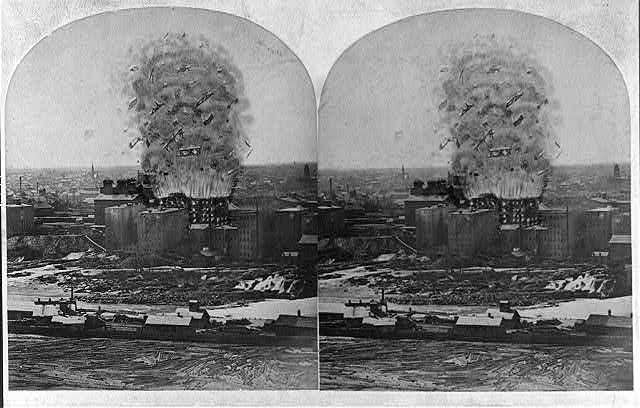Sen. Lautenberg Wants Background Checks To Buy Gunpowder, Eyes Laws of Chemistry For Further Restriction

I suppose it was inevitable that, after Monday's horrific Boston bombing attack turned out to be the result of crude chemistry and hardware supplies clamped into a pressure cooker, somebody would propose restrictions on anything that can go BANG! And, strictly speaking, we should probably be thankful that, rather than limit the cooks of the nation to hot plates and sterno, Sen. Frank R. Lautenberg (D-God's Waiting Room) proposes "to require that sales of explosive powder be subject to a background check." If this profoundly silly proposal makes it into the law books, it might well slightly inconvenience the nation's reloading hobbyists, who purchase gunpowder to save money on ammunition. But there's no reason to believe it would constitute even a minor speedbump for terrorists, or that the perpetrator of Monday's horror show would have been stopped by such a check.
From Sen. Lautenberg's office:
WASHINGTON, D.C.—In the wake of the deadly bombing attacks in Boston, U.S. Senator Frank R. Lautenberg (D-NJ) today announced that he will reintroduce legislation he has proposed in a prior Congress to require that sales of explosive powder be subject to a background check. He will also file the legislation as an amendment to the gun violence prevention bill currently on the Senate floor.
Current law allows an individual to purchase as much as 50 pounds of explosive "black powder" without a background check, and also permits an individual to purchase unlimited amounts of dangerous "smokeless powder" and "black powder substitute" without a background check. Sen. Lautenberg's proposal would change that and require a background check for any purchase of these explosive powders. These powders can be used as the explosive material in assembling pipe bombs, used in the Columbine school shooting, and pressure cooker bombs, which may have been used in the recent Boston attack.
Purchasing commercial gunpowder is a nice convenience for hobbyists because it provides consistent powder of known quality and stability. But making stuff blow up is not hard. I can't be the only person who scorched part of his home as a kid with black powder concocted from a library book recipe. Cormac McCarthy's excellent Blood Meridian includes a rather detailed recipe for making a large quantity of the stuff while running for your life.
Nastier explosives can be concocted with ease, too. I had a high school chemistry teacher who delighted in pranking his colleagues with nitrogen triiodide. Not hard stuff to make, as it turns out.
When I was a prisoner resident of New York City and found my cap and ball revolver separated from a reliable source of powder by the metropolis's restrictive laws, a little experimenting revealed that crushed matcheads made an imperfect, but adequate substitute. The Internet is full of all sorts of interesting workarounds, of varying ease, sensibility and reliability.
Even simple flour can explode under the right circumstances (see the photo up above) — those circumstances occurring all too easily for those who manufacture the stuff or store large quantities. The bloody Oklahoma City bombing was committed with an explosive made from common fertilizer and fuel oil. The fact of the matter is, preventing stuff from burning or blowing up can sometimes be a trickier task than causing explosions. So many common ingredients, from gasoline to sugar, can be used to cause mayhem, that Lautenberg's further proposal to "[m]ake it illegal to manufacture homemade explosives without a permit," falls just shy of a ban on naughty thoughts in terms of unenforceability.
But commercial gunpowder of the sort that Sen. Lautenberg wants to restrict is a handy, safe product for people who don't want to commit mayhem, but would rather buy a couple of pounds of powder at a time so they can load ammunition inexpensively or fire a reproduction musket. If you're trying to give them a hard time just for its own sake, this bill does just that, and not much else.
As I write, the authorities have images of "persons of interest" in the Boston bombing, but nobody in custody and no names. It's not clear, at all, that whoever committed the bombing would have had a criminal record of any sort to be caught by a background check. But it is certain that plenty of alternative means of creating explosives would have been available, if commercial gunpowder was not.


Show Comments (37)